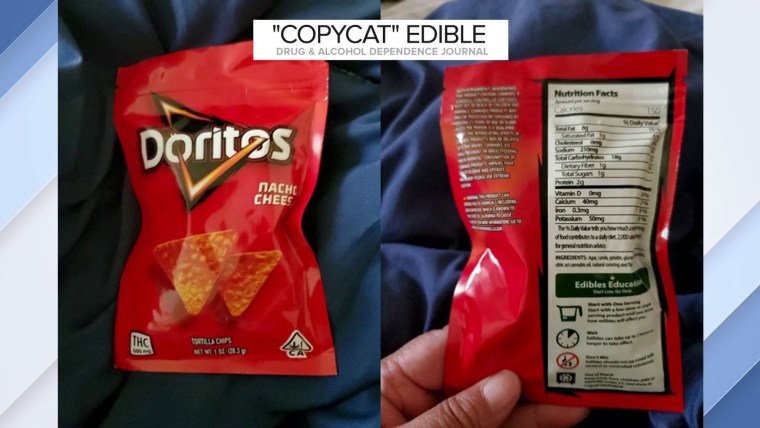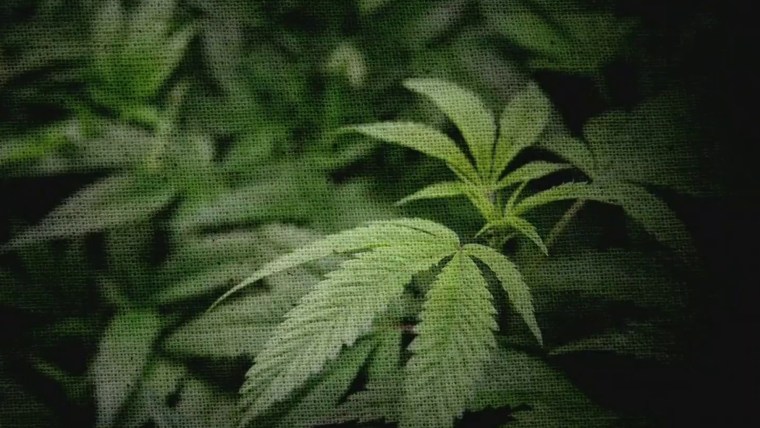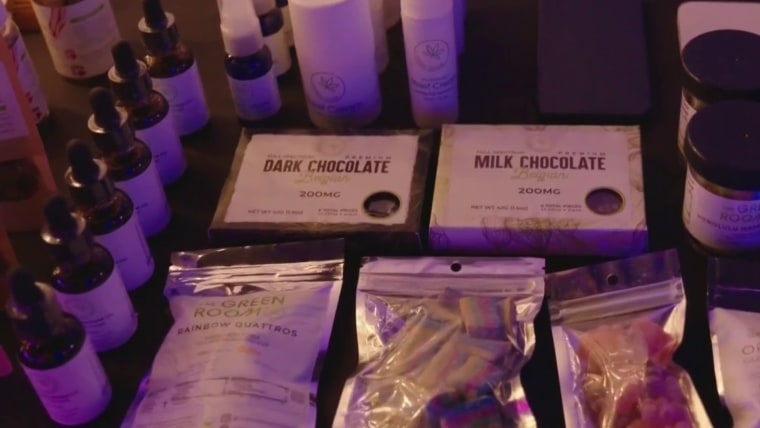With nationwide cannabis legalization poised to be launched within the Senate, states that legalized leisure marijuana 10 years in the past are now finding out the general public health implications of a spread of new high-potency merchandise amid questions on a potential link to psychosis.
The newer merchandise are referred to as marijuana concentrates and are generally often called wax and shatter. They can have ranges of THC, the psychoactive part of marijuana, as excessive as 85 % to 90 %. By comparability, researchers say, the marijuana degree in a typical joint 20 years in the past was nearer to five %. States like Washington and Colorado are now contemplating product warnings or efficiency caps to restrict entry.
At a January discussion board, the director of the National Institute on Drug Abuse, Dr. Nora Volkow, raised considerations that teenagers are more and more vaping high-potency cannabis.
Volkow stated she worries that “huge concentrations” of THC may have severe penalties. “We are seeing a very significant rise in psychosis associated with the consumption of marijuana,” she stated. “And the higher the content of THC, the higher the likelihood of a psychotic episode.”
She stated it stays an ongoing analysis query whether or not or not such psychotic episodes can result in everlasting schizophrenia.
In an announcement to NBC News, Bethany Moore, a spokesperson for the National Cannabis Industry Association, stated, “The best way to address these concerns is through proper testing and labeling, as well as ensuring cannabis products are only sold to fully-informed adults through licensed facilities that are required by law to verify legal age for purchase.”
Moore stated public security measures could be imposed successfully solely when underground markets are changed with regulated markets.
But some public health consultants have complained that trade backers of legalizing marijuana deal with the cannabis plant and fail to say that legalization shall be accompanied by a flood of cannabis concentrates.
“We were not aware when we were voting [in 2012] that we were voting on anything but the plant,” stated Dr. Beatriz Carlini, a analysis scientist on the University of Washington’s Addictions, Drug & Alcohol Institute. She has led the trouble in Washington state to analysis high-potency pot and is now exploring coverage choices to restrict entry. Her staff concluded in 2020 that “high-potency cannabis can have lifelong mental health consequences.”
Carlini stated there’s widespread understanding that the cannabis plant “is not that scary and it has some benefits, but this [concentrated] product is just a totally different animal.”
She likened it to the advertising of strawberry icing. “Strawberries are healthy, but a Pop-Tart with strawberry icing is not.”
The new high-THC merchandise aren’t authorized for these underneath 21 in states with leisure marijuana, however youngsters say they’re simply accessible.
Jasmin Block, 19, of Denver, instructed NBC News’ Steve Patterson that high-potency cannabis merchandise have been really easy to get that she was first supplied a “wax pen” between courses in her faculty rest room. She stated she was unable to know “how much was too much” and got here away “too high.” She stated the high-potency merchandise have been a gateway to stronger medicine.
Her mom, Sydney Block, stated that she had her personal struggles with dependancy and that when she noticed her daughter excessive from marijuana concentrates and slurring her phrases she was in disbelief, considering, “There’s no way that this is just weed.”
Will Brown, 18, additionally of Colorado, stated he began out smoking common weed and shortly moved on to high-potency marijuana and “crazy dabs” that left him mendacity on his bed room ground unable to speak. He stated he didn’t understand it was an issue till two years into his utilization. “My life was falling apart around me,” he instructed Patterson.
His mom, Janet Corneil, stated she started to suspect one thing was happening together with her son as a result of he stopped exhibiting up for sports activities follow. “And I was like, ‘What is wrong with you?’ you know? Because I didn’t smell it, you know? I couldn’t smell it on him. And he was acting erratic. And I had no idea what was going on.”
Both teenagers, who’re now sober, discovered assist at a Denver public highschool referred to as 5280 devoted to serving to youngsters in restoration.
Melissa Mouton, the varsity’s founder, stated, “There is a perception among teens that marijuana is safe, and what we’re finding out now is that actually there are a lot of harmful impacts that marijuana has on the teenage brain — because it’s still developing and growing.”
State legislative efforts
National cannabis legalization has already handed the House. Senate Majority Leader Chuck Schumer, D-N.Y., promised cannabis lobbyists on April 22 that he would introduce a Senate model by August. He’s going through some resistance from Republicans.
But in Colorado after emergency room medical doctors testified final 12 months that they have been seeing rising instances of psychosis related to marijuana concentrates, a invoice that curbed entry to high-potency merchandise handed the Legislature unanimously.
One of the laws’s parts directed the University of Colorado’s medical faculty to do a complete evaluation of greater than 800 scientific articles on the bodily and mental health impacts of high-potency THC. The report is due in July.
The evaluation staff met this week. Dr. Jon Samet, the dean of the Colorado School of Public Health, is overseeing the trouble. He stated the research aren’t uniform of their strategies or outcomes and that will probably be difficult to characterize the “messy data,” however he stated he anticipates making a public database of analysis that shall be saved updated.
In Washington state, researchers are additional alongside, having accomplished a six-month evaluation in 2020 led by 11 scientists who concluded that THC has a “dose response.” That means the extra THC consumed, the more serious the unfavorable results. The work started after focus gross sales soared, rising from 9 % of the state’s authorized cannabis market in 2014 to 35 % in 2020.
The Washington researchers, led by Carlini, concluded that younger individuals have been significantly susceptible to dependancy and unfavorable results from high-potency marijuana and that “there is an urgent need for policy considerations and deliberations to support public health and well-being.”
Since the work was printed in 2020, she stated, she has heard from different states that need steerage. “Our mistakes are there for everyone to see, and people are trying to learn from our mistakes.”
Researchers from the 2 state groups are consulting each other. In Seattle, researchers are exploring methods to scale back entry to the merchandise, together with a cap on efficiency or a potential tax primarily based on the efficiency degree, as is already in use in Illinois and New York.
The Washington staff can be product warning labels like these utilized in Canada, which say: “WARNING: Frequent and prolonged use of cannabis containing THC can contribute to mental health problems over time. Daily or near-daily use increases the risk of dependence and may bring on or worsen disorders related to anxiety and depression.” The staff’s subsequent report is due on the finish of 2022.
State efforts to impose efficiency caps have been combined.
Vermont is the one state with authorized leisure marijuana that has a efficiency cap. Other efforts failed in South Dakota and Massachusetts.
The cannabis trade has strongly pushed again in opposition to efforts to curtail marijuana concentrates, saying the merchandise are common with shoppers and that there’s “scant clinical or epidemiological evidence to suggest significant or widespread risk associated with those products for the vast majority of consumers.”
Carlini stated she’s used to the trade’s downplaying the risks. And she stated that’s why her staff said its conclusion clearly in its 2020 report — “The greater the potency of cannabis products, the greater the likelihood of adverse health events.” She stated, “We really stand by this consensus.”





